A vehicle's alternator is vital to it, as it provides power to your lights, radio, and other accessories in the car when the engine is running. But will the alternator get damaged if it gets wet? We did the research to bring you the answer.
Although your alternator is water resistant, it can still get damaged by water. If an alternator is wholly submerged in water, it will likely be damaged beyond repair. However, small amounts of water from a car wash or puddle should not damage your alternator.
It's common knowledge that electricity and water don't mix. In this article, we will further explain how water can damage your alternator and what you can do to avoid it. In addition, we will answer other frequently asked questions about vehicle alternators, so keep reading!
![A brand new car alternerator, Can An Alternator Get Wet? [Or Will It Be Damaged?]](https://vehq.com/wp-content/uploads/2022/05/2Can-An-Alternator-Get-Wet-Or-Will-It-Be-Damage.png)
How Much Water Will Damage An Alternator?
The alternator is a crucial component of any car. The alternator provides power to your vehicle's electrical components and recharges the battery when you are driving.
Without an alternator, you would quickly run out of power for all your electronic components, including ignition, lights, radio, and defroster. If your car's alternator fails, your car will eventually stall and won't restart.
So does that mean that your alternator can get damaged by water? The short answer is yes. However, how much damage water will cause depends on how long it is submerged in it and the type of water it touches.
While alternators are manufactured with a protective coating that makes them water resistant, they are not waterproof. As a result, there are still ways that water can penetrate the alternator's exterior and cause damage.
One common way is through a crack or hole in the alternator casing. Once water enters the alternator, it will rust and corrode the internal components. Rust and corrosion will eventually lead to the failure of the alternator.
In addition, most experts recommend that you avoid entirely submerging your vehicle in water or driving through a large body of standing water, as this can cause severe damage to the alternator.
However, if your vehicle is caught in a flood, there isn't much you can do to avoid the water. In this case, it is best to have your alternator checked by a professional as soon as possible after the flood and contact your insurance provider.
The good news is that most small amounts of water, such as a car wash or rainstorm, will not impact your vehicle's alternator. Just don't directly spray water on the alternator when cleaning your car.
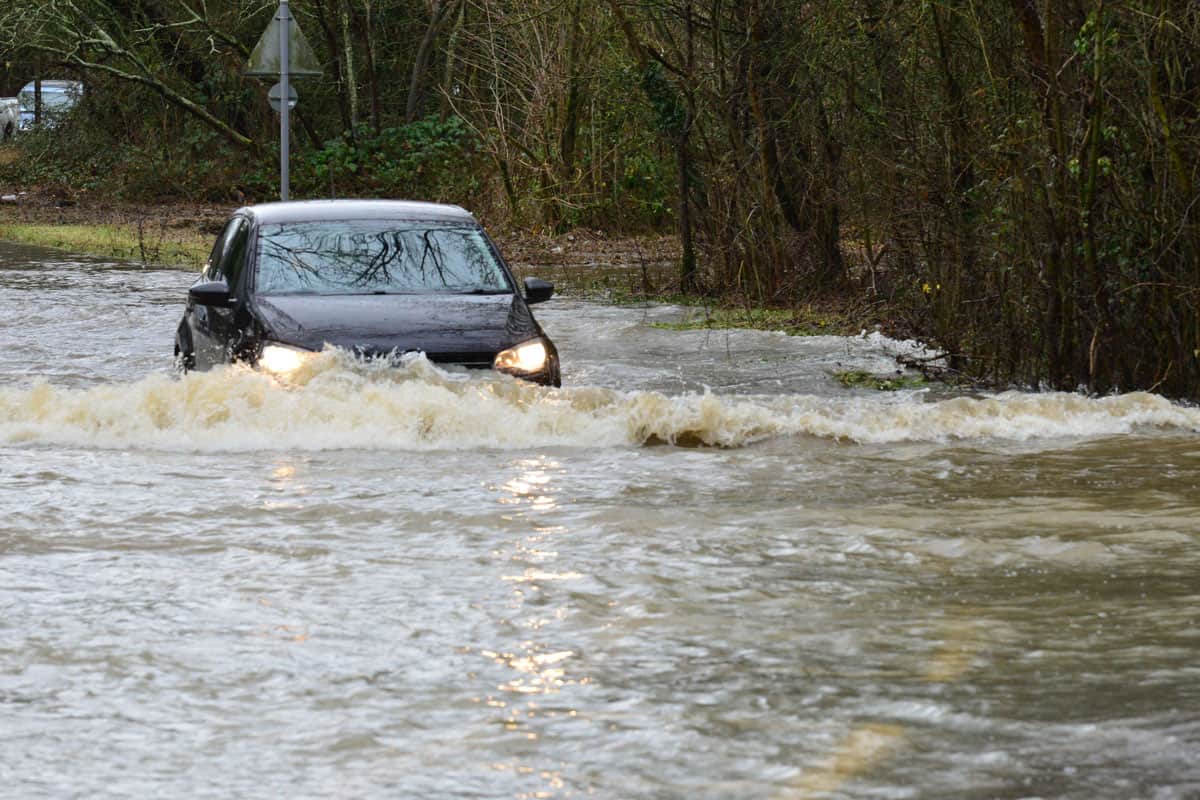
Are Alternators Waterproof?
Alternators are not waterproof, but they are water-resistant. This means that they can withstand some exposure to water without being damaged.
It is nearly impossible to waterproof an alternator due to how it is made. Alternators are air cooled and have vents that allow air to flow through the casing. These vents also allow water to enter the alternator if it is submerged in water.
However, manufacturers add a protective coating to the exterior of the alternator that protects against small amounts of water and moisture.
Should You Spray Your Engine Bay?
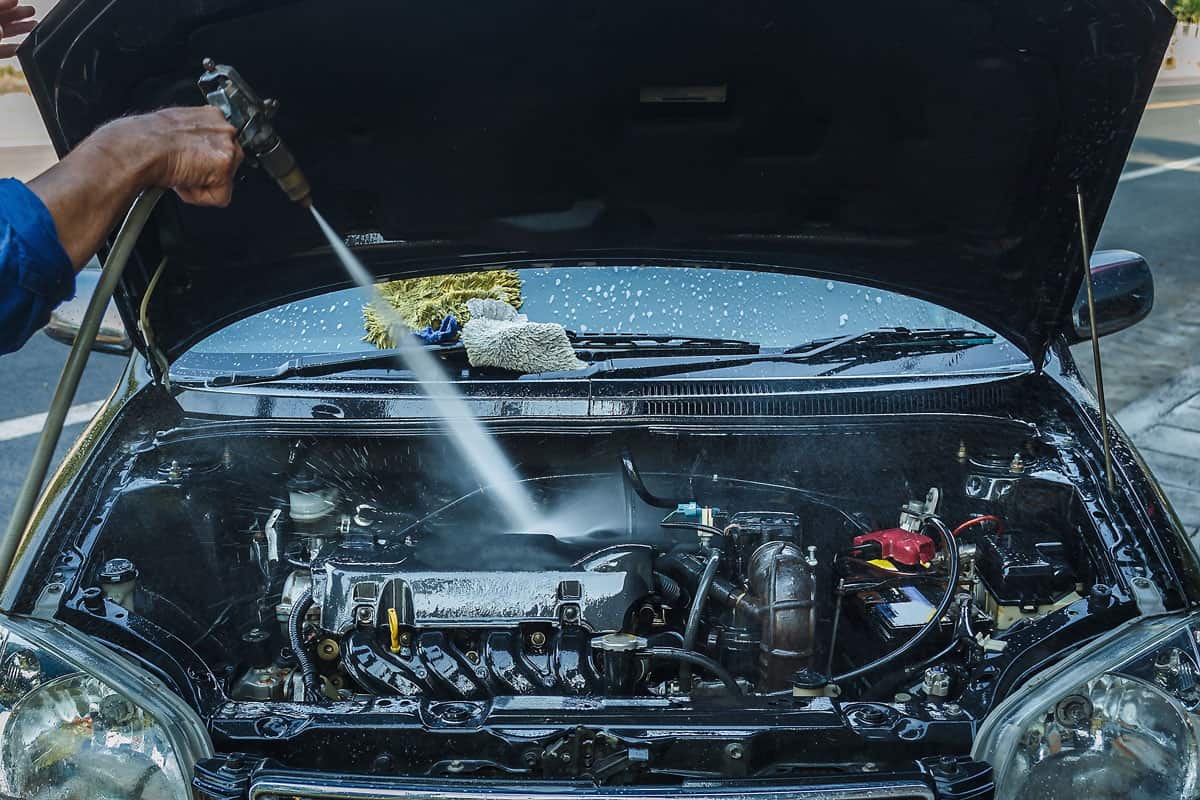
The engine bay is where your vehicle's engine and other components are located. You may have been told to avoid spraying water directly onto the engine when cleaning your car.
This is because water can enter through cracks and crevices and cause damage. However, if you use a low-pressure setting on your hose, you should be able to clean your engine bay without causing any problems. Most vehicles will have waterproof coverings for the electrical components in the engine bay.
If your vehicle doesn't have waterproof coverings, then you will need to prep the engine bay. Cover any wires or electrical components in the engine bay to protect them from water damage.
However, it is best to avoid spraying water directly onto your car's alternator, intake, or sensors. If you need to clean these areas, consider using a slightly damp cloth or sponge and taking extra care not to let excess water accumulate anywhere on or near these components.
In addition, having a professional clean your vehicle's engine bay is always a good idea, as they will know exactly how to keep your vehicle safe from water damage.
How Do You Know If An Alternator Is Bad?
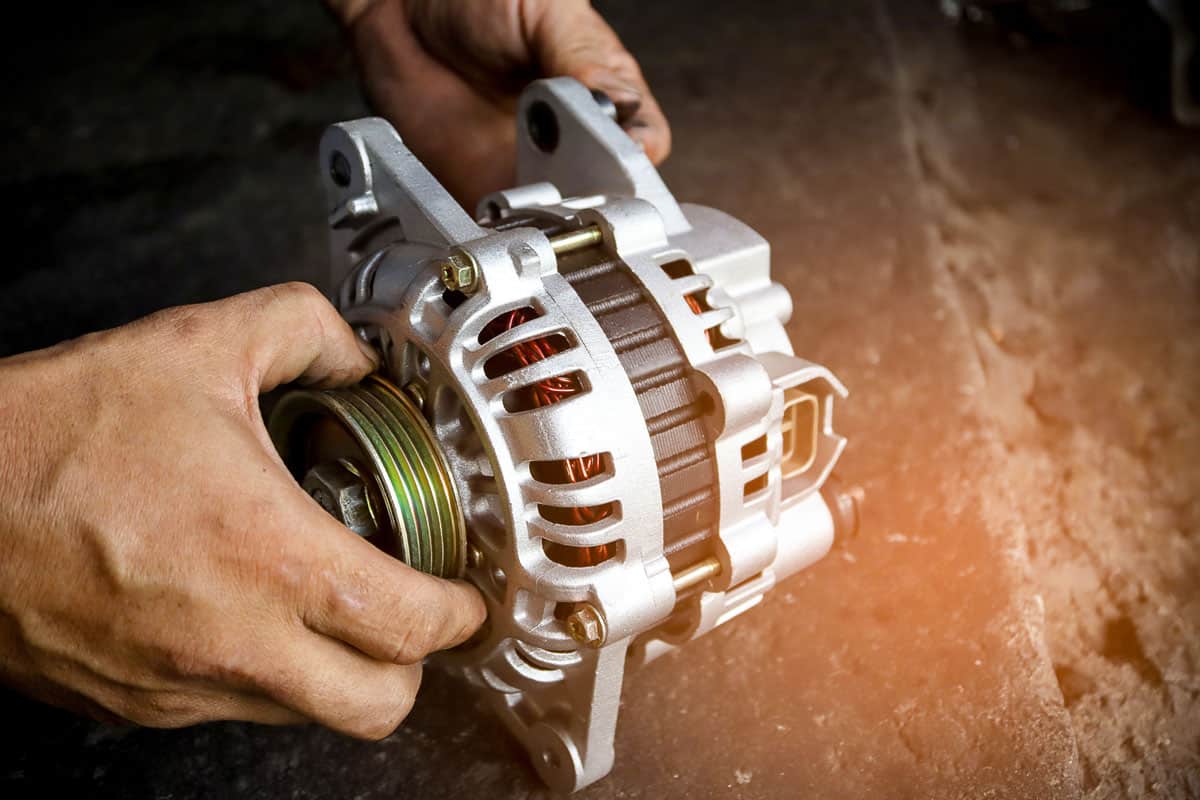
If you suspect that your alternator is bad, there are a few things to look for. Let's take a closer look at a few of the most common signs:
Dimming Lights
One of the first things you might notice is that your headlights are dimming or flickering when you try to accelerate. This is a sign that your alternator is not providing enough power to your vehicle's electrical system.
Dead Battery
Another common symptom of a bad alternator is a dead battery. The alternator provides power to the battery, so if it is not working correctly, the battery will eventually lose all its power and be unable to start your vehicle.
If you jumpstart your battery and it quickly drains again, this is another sign that your alternator may be malfunctioning.
Battery Warning Light
If you are driving and your vehicle's battery warning light comes on, it is likely that your alternator is starting to fail. However, this can also be a symptom of other electrical problems. Either way, it is a warning sign that something is wrong and needs to be addressed.
Electronics Turn Off
As your alternator fails, you will notice that your electronics, such as the radio or air conditioning, will start to turn off randomly. This is because these devices are not getting enough power from the alternator and are shutting down.
Strange Noises
If you hear a grinding or squealing noise coming from your engine bay, it is likely that your alternator bearings are failing. This can be a serious problem and should be checked out by a professional right away.
Stalling Engine
If your car stalls frequently, you may have a bad alternator. The alternator cannot provide enough power to keep the engine running. Engine stalling can be dangerous, so you should pull over to a safe area and call for help if you notice this symptom.
Strange Smells
If you notice a strong, burning smell coming from your engine bay, it is possible that your alternator or other electrical components are overheating. This can be caused by excessive resistance within the system and should be checked out immediately.
These symptoms can put you in a dangerous situation if left unchecked, so it is important to have your vehicle inspected as soon as possible if you suspect that your alternator is bad. With regular care and maintenance, you can help keep your alternator in good working order and avoid costly repairs down the road.
How Much Is A New Alternator?
The cost of an alternator can vary depending on your vehicle and the type of alternator you need. On average, it costs $200-$600 to replace an alternator in a standard car.
However, prices can be significantly higher for luxury vehicles or high-performance cars. For example, a high-end sports car may need an alternator that costs over $1,000.
If your vehicle is under warranty, it may also be covered by your manufacturer's policy. Check with your dealer to see if you are eligible for any potential savings.
Regardless of the type of vehicle you have, it is always best to work with a trusted mechanic. They can help advise you through the process and get you back on the road as quickly as possible.
How Long Does It Take To Replace An Alternator?
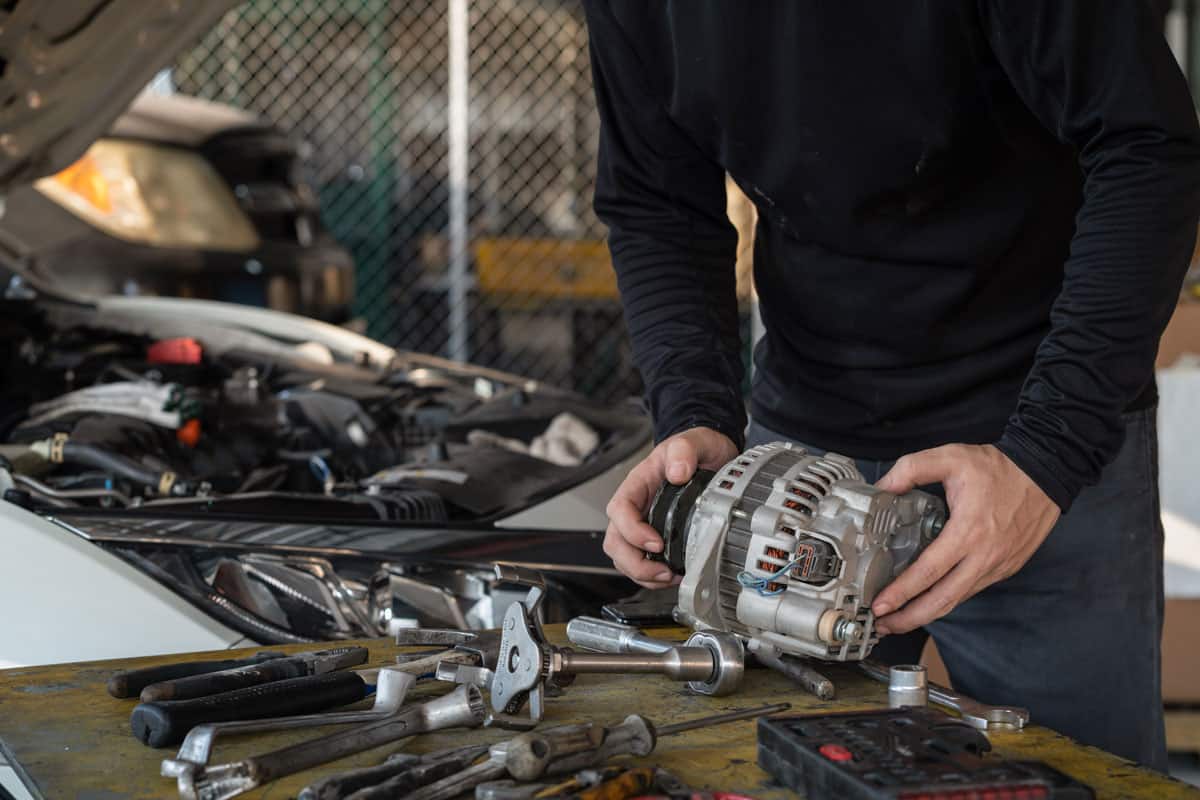
The time it takes to replace an alternator can vary depending on the make and model of your vehicle. However, it typically takes 2-4 hours to complete the job in most cases.
However, some vehicles may require more time due to their complex electrical systems. Before having your alternator replaced, ask your mechanic for an estimate of how long the job will take.
In some cases, you may want to seek a specialist who can provide alternator repair services if you are concerned about promptly getting quality work done.
Final Thoughts
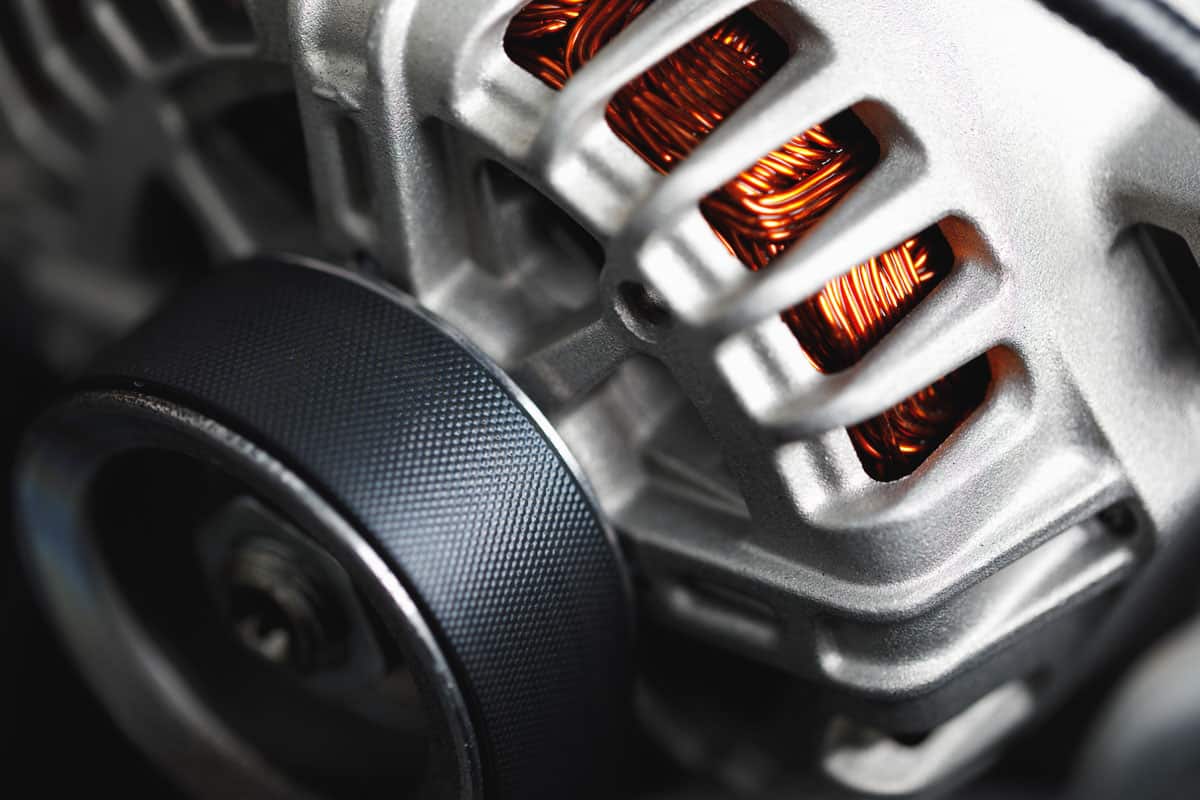
Overall, small amounts of water shouldn't have a big impact on your alternator. However, it is important to remember that even small problems can get worse over time. So if you notice any of the symptoms described above; be sure to have your vehicle inspected by a professional as soon as possible.
Made it to the end? Here are other articles you might find helpful:
How Long Can You Drive With A Bad Alternator?
